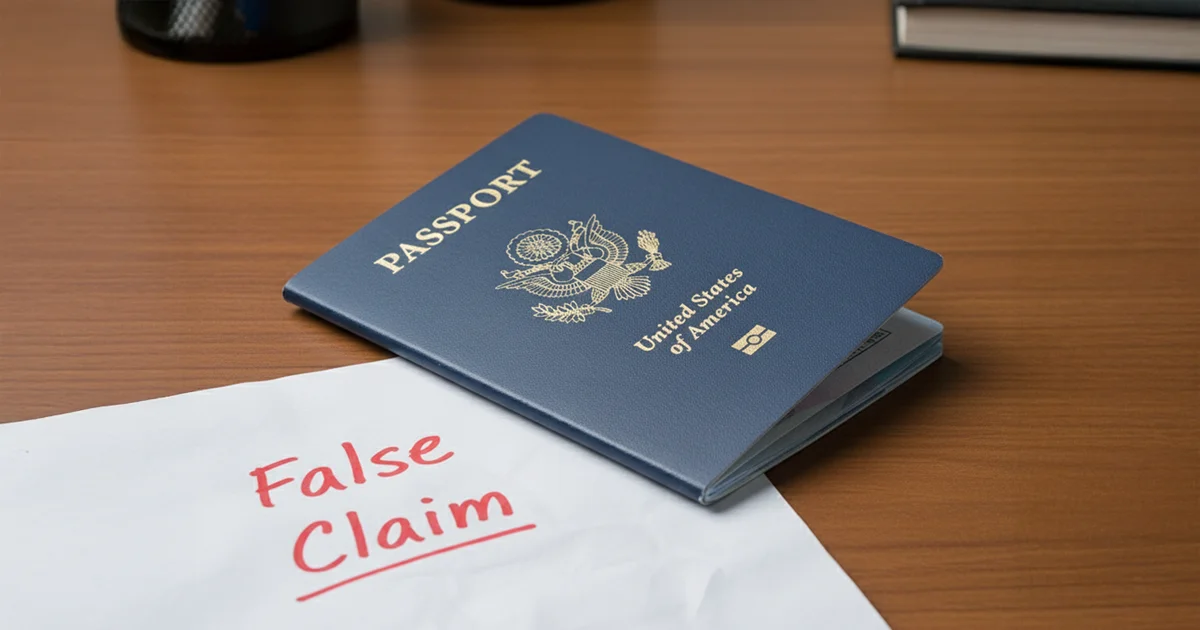On August 20, 2025, USCIS issued a major policy update revising its guidance on the false claim to U.S. citizenship ground of inadmissibility. This change brings USCIS practice in line with the Board of Immigration Appeals decision in Matter of Zhang, and it applies immediately to all pending and new cases. In my practice at SG Legal Group, I see how devastating a false claim finding can be—it often results in permanent inadmissibility with very limited exceptions. Applicants should understand this new guidance before filing any immigration application.
Key Changes in the Policy Manual
- No intent requirement: Under INA 212(a)(6)(C)(ii), a false claim to U.S. citizenship does not need to be intentional, knowing, or willful. Even if someone genuinely believed they were a U.S. citizen, they can still be inadmissible unless a narrow exception applies .
- Prior defenses eliminated: Past DHS guidance that allowed defenses based on age, knowledge, or mental capacity is now invalid. Matter of Zhang supersedes those interpretations .
- Pre-1996 claims: False claims made before September 30, 1996 do not trigger the statutory bar, but they may still require a waiver for fraud or misrepresentation .
- Five-step analysis: Officers must now consider (1) whether a false claim occurred, (2) whether it was after September 30, 1996, (3) whether it was made for a purpose or benefit under federal or state law, (4) whether it was timely retracted, and (5) whether any exemption or waiver applies .
- Subjective intent standard: A person is inadmissible if they claimed U.S. citizenship believing it mattered to the benefit sought—even if their belief was mistaken .
Exemptions, Exceptions, and Waivers
The update clarifies when inadmissibility may not apply:
- Exemptions by statute: Special Immigrant Juveniles and registry applicants are exempt.
- Exceptions: A timely retraction or misrepresentation made for another person’s benefit (and not the applicant’s own) may avoid the bar.
- Waivers: If the false claim predates September 30, 1996, an I-601 waiver may be available .
Practice Pointers for Applicants
As an immigration attorney, I recommend the following steps before filing any application that could raise a false claim issue:
- Screen carefully for any past claims of citizenship, even on old state IDs, I-9 employment forms, or benefit applications.
- Request FOIAs and background checks from FBI, OBIM, and CBP to uncover prior records .
- Evaluate exemptions or exceptions—such as SIJ eligibility or a valid timely retraction.
- Consider alternate relief such as cancellation of removal if no waiver applies .
- Review pending cases immediately, as the policy applies to all open matters .
Why This Matters
I often meet clients who are surprised to learn that even a casual or mistaken claim of citizenship—like checking the wrong box on a form—can permanently bar them from immigrating. With this update, USCIS has closed the door on many prior defenses, making it more important than ever to evaluate each case thoroughly.
Conclusion
The August 2025 USCIS policy update underscores the seriousness of false claims to U.S. citizenship. Applicants should expect stricter adjudication and fewer defenses available. Careful screening and legal strategy are essential before moving forward with any benefit application.
If you need experienced legal guidance for your immigration case, contact me at SG Legal Group. My team and I will help you navigate the process with confidence. Consultations are available in English, Russian, or Romanian. Call 410-618-1288 or visit our Contact page to schedule a consultation.
